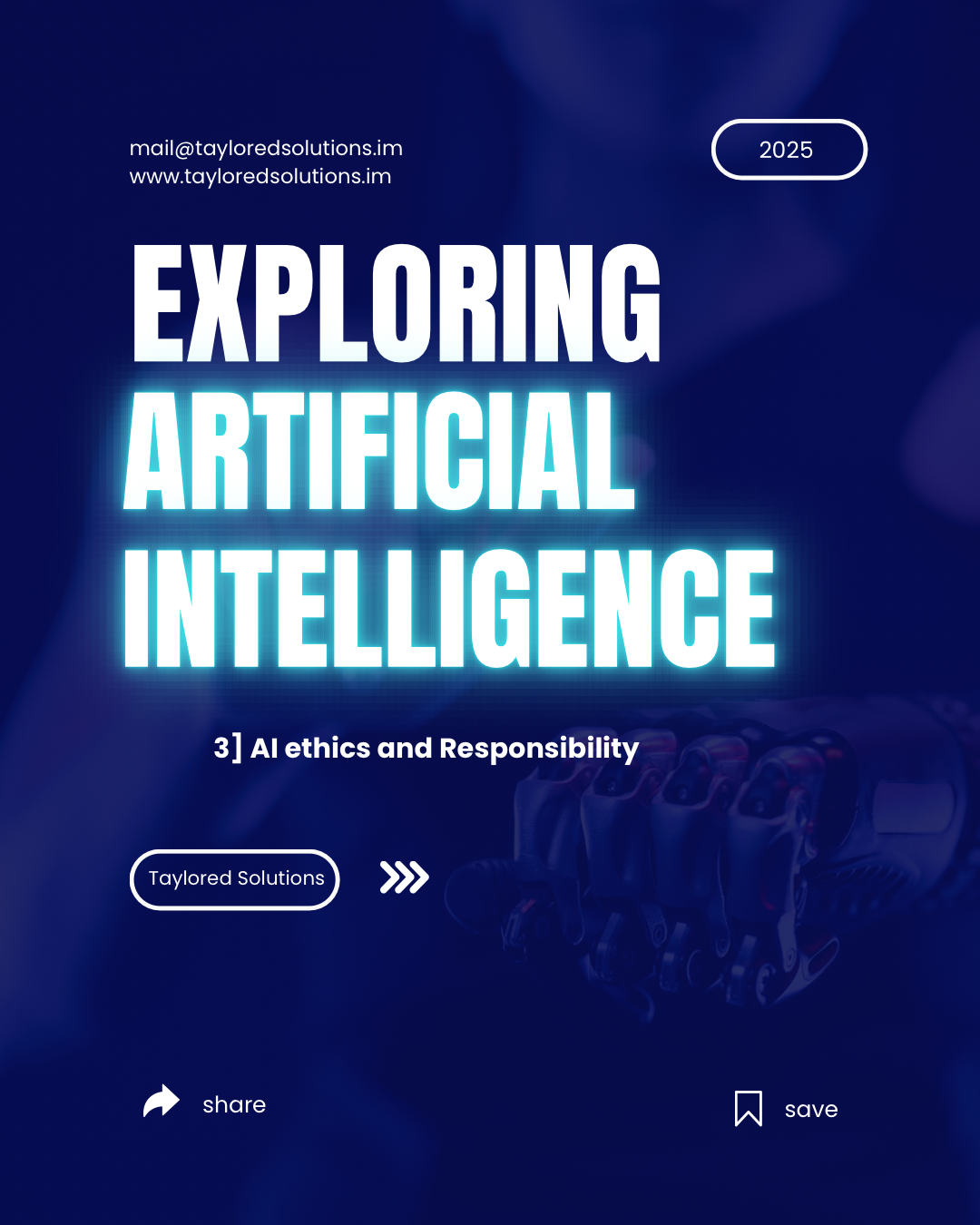Exploring Artificial Intelligence [3]
Ethical AI in Business

AI is everywhere you turn right now. Regardless if you’re actively using AI tools, seeing the online hype, or actively avoiding it, you can't ignore how quickly AI is changing a lot of what we do. Businesses are adopting AI to streamline processes, improve customer experience, and make smarter better decisions. This comes with additional responsibilities though. It isn't about what AI can do, but what it should do.
AI Ethics isn't be left to the developers or tech companies; it’s something every business needs to consider. If you use AI it needs to be fair, transparent, and secure. To not only protect your business, also your customers, employees, and your reputation.
So, how do you make sure your AI strategy is ethical? Let’s break it down.
Why Ethical AI Matters
Getting AI ethics right isn’t just avoiding bad press. It’s also about:
✅ Trust: Customers, employees, and stakeholders need to be confident AI use is responsible and ethical.
✅ Compliance: Laws and regulations around AI and data privacy are evolving—staying ahead of them is key.
✅ Sustainability: What’s considered “ethical” today might change in the future. A solid AI governance strategy ensures you’re building for the long term.
Key Ethical Considerations in AI for Business
1. Bias in AI: Is Your AI Fair?
Bias in AI is a major issue because AI learns from historical data. If that data reflects past discrimination, AI can continue those patterns—often in ways we don’t immediately notice.
❗ An AI bot for hiring trained on past company data noticed that most successful candidates were men. So, it started filtering out CVs from women. The bias wasn’t intentional, but the outcome was the same.
How to Avoid It:
✔️ Regularly check AI outputs for unintended bias
✔️ Use diverse and representative datasets
✔️ Ensure a diverse team is involved in AI development and review
2. Data Privacy: Handling Customer Information Responsibly and Securely
AI thrives on data—businesses need to be clear about how they’re using Data. Customers expect transparency and compliance with regulations like GDPR.
🚫 AI-powered chatbots collect user data for “personalisation” but it's not always made clear what’s being stored or how it’s used.
How to Avoid It:
✔️ Clear explanation of what data AI is collecting and why it is collected
✔️ Give users control over their data (opt-in, opt-out)
✔️ Keep data storage secure and in line with compliance laws
3. Transparency: Do People Know When AI is Involved?
If AI is making decisions that affect people, they deserve to know. A lack of transparency can damage trust.
🤔 AI-driven mortgage approval algorithms approving or denying applicants, being denied with automated responses and the customer does not know why or how to appeal the decision
How to Avoid It:
✔️ Clearly communicate if AI is being used to make decisions
✔️ Use Explainable AI (XAI) so decisions aren’t a “black box”
✔️ Provide a way for people to challenge or appeal AI-driven decisions
4. AI Risk Assessments: What Could Go Wrong?
No AI system is perfect. Businesses need to assess potential risks—whether that’s bias, security vulnerabilities, or unintended consequences.
❌ An AI fraud detection system that started wrongly flagging legitimate customers, leading to account blocks and customer frustration.
How to Avoid It:
✔️ Risk assess before deploying AI tools
✔️ Monitor AI outputs regularly to catch issues early
✔️ Have backup plans in place for when AI gets things wrong
5. AI User Policies: Setting Boundaries for AI Use
It’s easy to hope everyone will use AI responsibly, but without clear definitive policies, mistakes can happen. Businesses need to define how AI should (and shouldn’t) be used.
✋ An employee using AI potentially exposes confidential company data in the AI App because there were no guidelines in place.
How to Avoid It:
✔️ Create clear internal AI usage policies for employees
✔️ Provide regular up to date AI training and best practices
✔️ Regularly review and update AI policies as technology evolves
6. AI Security: Protecting AI from Cyber Threats
AI can be a cybersecurity risk if not properly managed. Bad actors can manipulate AI systems or use them to extract sensitive data.
🦹♀️ Jailbreaking can be used to trick AI chatbots, bypassing security measures, which could lead to data keaks and potentially harmful content spread.
How to Avoid It:
✔️ Keep AI Models security measures up to date
✔️ Use AI models that can resist manipulation
✔️ Continuously monitor and test AI security risks
7. The Human Element: Keeping AI Accountable
AI should enhance human decision-making, not replace it. No AI system should operate without human oversight, especially in critical areas like hiring, healthcare, or finance.
🤗AI chatbots handling customer service shouldn't prevent option to speak to a human.
How to Avoid It:
✔️ Ensure AI systems have human intervention points
✔️ Train employees to work with AI, not against it
✔️ Make sure humans can override AI decisions when necessary
AI is much more than just another tech toy—it’s a powerful force that can shape the future of business. Ethical AI is not about box ticking for regulators. It's building something you and your customers can trust and protects its users, with future proofing ability.
If you put AI ethics first you create AI that works for everyone. Cutting corners you run the risk of losing customer trust, facing regulatory fines, or having AI systems with more problems than the fix.
Coming Up Next: AI Bias Should We Mitigate It or Let AI Learn From It?
While researching AI ethics, I kept coming across AI bias. We know it’s a problem, but it raised an interesting question:
If bias exists in human history and data, should AI be forced to unlearn it, or should it be allowed to learn from it and evolve naturally? Does rewriting history in AI actually change anything, or are we just shifting the problem?




